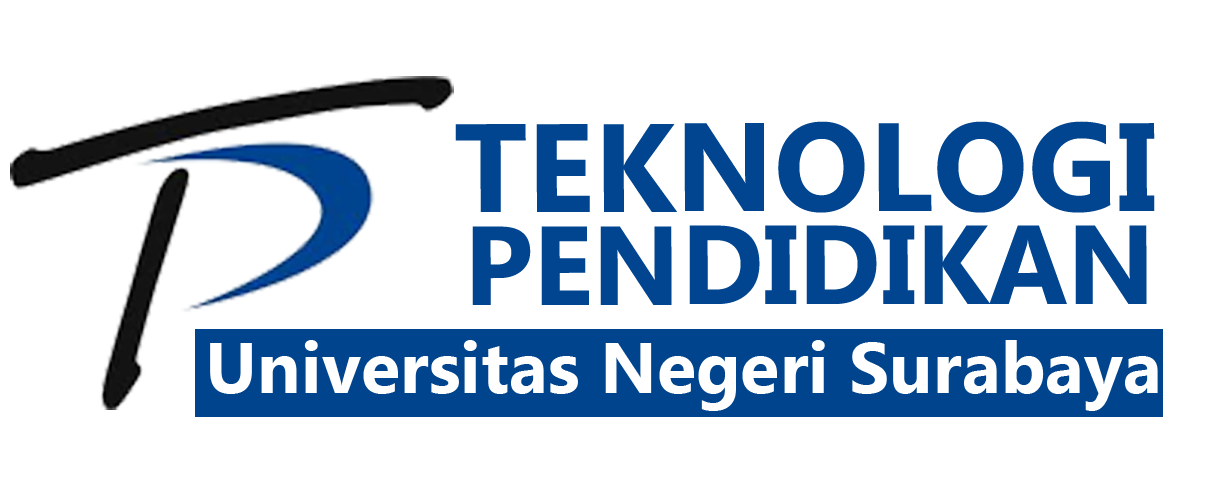Psikologi Pendidikan Lanjut
Course infomation

Mengkaji secara kristis keterkaitan teori-teori belajar dengan pembelajaran, pemanfaatan media pembelajaran, dan teknologi pendidikan. Kemampuan itu mencakup (1)membuat keputusan dan menyelesaikan masalah dengan bijak, (2) mengaplikasikan pengetahuan, pengalaman dan kemahiran berfikir secara lebih praktik baik di dalam atau di luar organisasi/sekolah, (3) menghasilkan idea atau ciptaan yang kreatif dan inovatif, (4) mengatasi cara-cara berfikir yang terburu-buru, kabur dan sempit, (5) meningkatkan aspek kognitif dan afektif, dan (6) bersikap terbuka dalam menerima dan memberi pendapat, membuat pertimbangan berdasarkan alasan dan bukti, serta berani memberi pandangan dan kritik
- 1. Pablo Briñol and Kenneth G. DeMarree.2012. Social metacognition. Taylor & Francis Group, LLC; NY
- 2. Schunk, Dale H. 2012. Learning theories : an educational perspective.Pearson:NY
- 3. Levin , Daniel T. 2004. Thinking and seeing : visual metacognition in adults and children. Massachusetts Institute of Technology; Massachusetts
- 4. Peña-Ayala, Alejandro. 2015. Metacognition: Fundaments, Applications, and Trends: A Profile of the Current State-Of-The-Art. Springer; NY
- 5. Larkin, Shirley. 2010. Metacognition in young children. Routledge; NY
- 6. Azevedo, Roger & Aleven, Vincent. 2013. International Handbook of Metacognition and Learning Technologies. Springer; NY
- 7. Slavin, R. E. 2017.Education Psychology: Teori and Practice.New York: Pearson
- 8. Blummer, B., & Kenton, J. M. (2015).Improving Student Information Search A Metacognitive Approach.India: Chandos Publishing.
- 9. Chinien, C. A., & Boutin, F. (1993). Cognitive Style FD/I: An Important Learner Characteristic for Educational Technologists.Journal of Educational Technology Systems, 21, 303-311.
- 10. Cormier, W., & Cormier, L. (1985).Interviewing Strategies For Helpers: Fundamental Skill Cognitive Behavioral Interventions.Monterey, California: Brooks/Cole Publishing Company.
- 11. Faschingbauer, T. R., Moore, C. D., & Stone, A. (1978). Cognitive Style, Dogmatism, and Creativity: Some Implications regarding Cognitive Development.Psychological Reports, 775-804.
- 12. Kozhevnikov, M. (2007). Cognitive Styles in the Context of Modern Psychology: Toward a Integrated Framework of Cognitive Style.Psychological Bulletin, 464–481.
- 13. Lajoie, S. P. (2008). Metacognition, Self Regulation, and Self-regulated Learning: A Rose by any other Name?Educ Psychol Rev, 469–475.
- 14. Riding, R., & Cheema, I. (1991). Cognitive Styles—an overview and integration.Educational Psychology, 193-214.
- 15. Santrock, J. W. (2010).Educational Psychology.New York: McGraw-Hill.
- 16. Scunk, D. H. (1985). Self Efficacy and Classroom Learning.Psychology in the Schools, 208-223.
- 17. Slavin, R. E. (2006).Education Psychology: Teori and Practice.New York: Pearson.
- 18. Thomas, P. R., & McKay, J. B. (2010). Cognitive styles and instructional design in university learning.Learning and Individual Differences, 197–202.
Open RPS PDF











